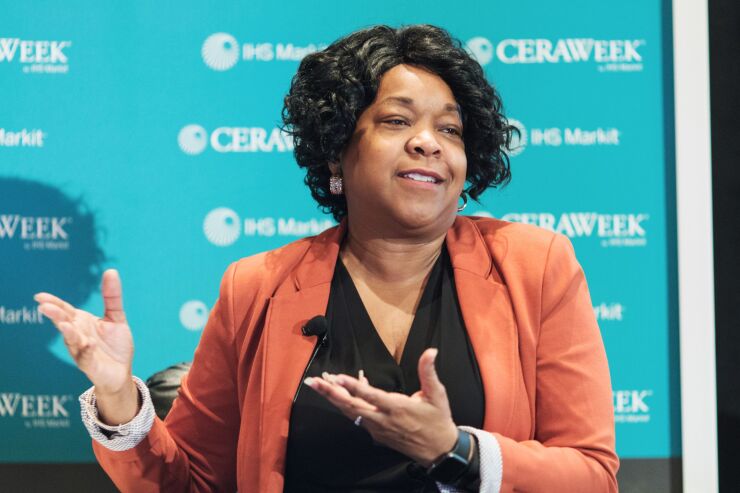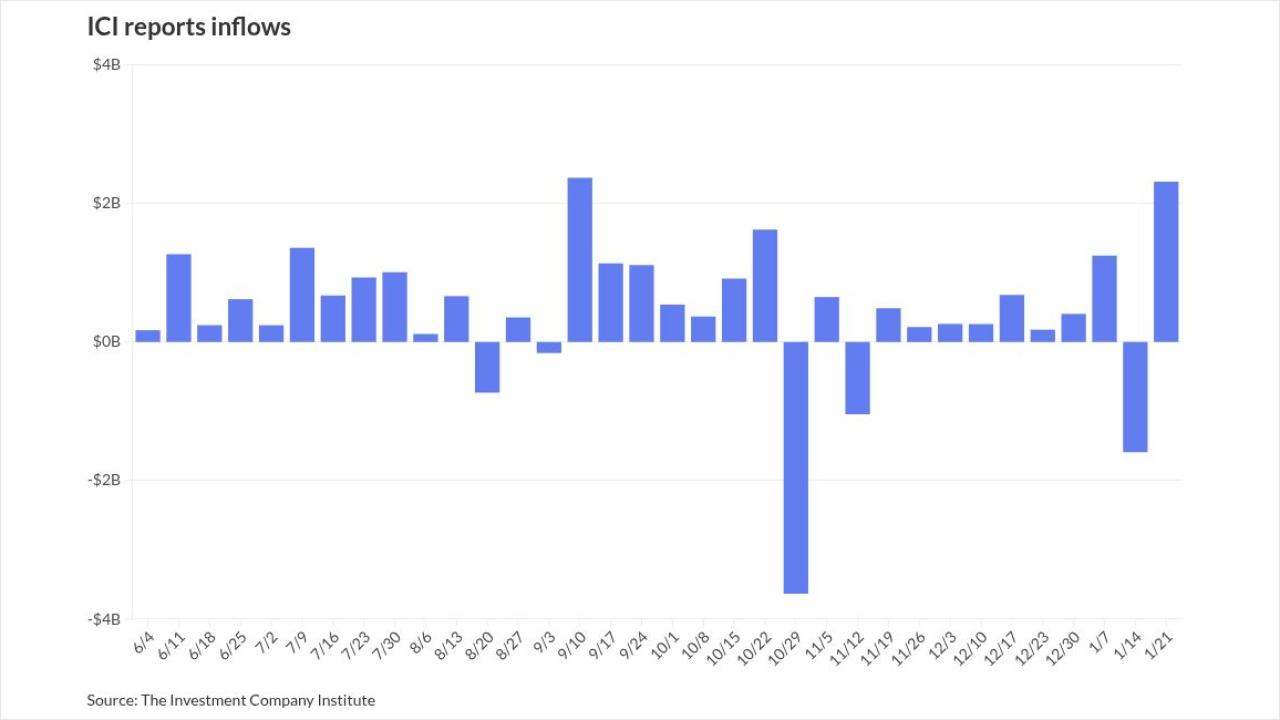San Antonio’s CPS Energy will issue $367 million of bonds amid upheaval in the Texas utility market from the deep freeze that crippled the state in February.
The junior-lien bonds refund commercial paper. They will be issued following a rating downgrade and negative outlook revisions for CPS debt.

The upcoming bonds are rated AA-minus by Fitch Ratings after the recent downgrade from AA-plus, with the outlook still negative. It assigns the same rating to the junior and senior liens.
No date has been set for the negotiated pricing.
“We’ve been delayed, so we have not released the POS,” said Chief Financial Officer Gary Gold. “I anticipate that we will release it this week. We’re still firming up some details.”
“Fitch expects CPS Energy's financial profile to weaken as the utility plans to use long-term debt to finance the recovery of the purchased power and natural gas fuel costs,” analysts wrote.
S&P Global Ratings lowered its rating one notch to AA-minus on March 10, keeping on the CreditWatch with negative implications assigned Feb. 26.
"The ongoing CreditWatch reflects the potential for a further downgrade of one or more notches,” S&P said. “In particular, we will consider whether the magnitude of any rate increases the utility may need to seek weakens our assessment of its market position or if fixed-charge coverage metrics come under additional pressure.”
Moody’s Investors Service placed the outlook on CPS’s Aa1 rating on a negative outlook March 8.
“The proposed transaction is one of the many steps CPS Energy is undertaking to bolster its liquidity profile in anticipation of potential costs related to the weather event,” Moody’s noted.
The deal will restore the commercial paper capacity to $700 million, Moody’s said.
“This would increase the utility's adjusted days cash on hand, which includes amounts available under the credit facilities backing the CP program, to 375 days from 276 days,” analysts said.
On Thursday, the San Antonio City Council approved CPS’s plan to reduce the impact of the five days of expensive power purchases it was forced to make through the state grid operator, the Electric Reliability Council of Texas.
"While fuel charges are normally passed on to customers, our team will pursue every financing tool within our ability to spread the financial impact over years," the utility told its customers.
The price of power reached the limit of $9,000 per megawatt hour the week of Feb. 14. CPS has estimated that the unplanned cost of power would exceed $1 billion.
The council authorized CPS Energy to seek up to a $500 million line of credit to provide liquidity if needed over the short-term. CPS will only use this line of credit when it is needed and the debt will have no negative financial impact on the city or customers’ bills, officials said.
“While we are executing on our multifaceted plan to protect our customers, a primary focus remains on seeking federal and state financial and policy assistance for our community,” said CPS chief executive Paula Gold-Williams.
The council also authorized a lawsuit against ERCOT.
“Those who suffered the consequences of ERCOT’s failure must not be victimized by one of the largest illegal transfers of wealth in the history of Texas, too,” said San Antonio Mayor Ron Nirenberg. “Ensuring the fair treatment of customers and preventing them from additional harm by outrageous, excessive charges is essential, and we are fighting to achieve that goal.”
Gold-Williams called the ERCOT charges “outrageous and unlawful” based on the grid operator’s own failures. “During a state declared disaster, ERCOT ran up $20 billion in charges for five days of energy supply due to its lack of oversight, preparedness, and failure to follow its own protocols,” Gold-Williams said.
“That is a huge amount of money and it’s incredibly important we continue to fight for our customers to bring those bills down,” she said.
As part of its investigation into the February storm, the Public Utility Commission of Texas’ Independent Market Monitor concluded that ERCOT made critical mistakes that resulted in erroneous electricity overcharges, and recommended the charges be reversed. IMM also said ERCOT exceeded the mandate of the PUC by continuing to set high prices long after the load shed required it.
The CPS lawsuit cites breach of contract, negligence, and violation of the Texas Constitution.

Texas courts have not decided whether ERCOT can be sued or whether the grid operator enjoys sovereign immunity. In a 5-4 vote, the Texas Supreme Court said it cannot make a decision about whether ERCOT can be sued because of a legal technicality, according to an opinion filed Friday.
The
“However much we may desire to provide answers in these now moot interlocutory proceedings, the constitution prohibits us from doing so, and we must respect that prohibition,” wrote Justice Jeffrey S. Boyd in the opinion of the court.
The trial court’s final judgement in the Panda case meant that any opinion the Supreme Court gave would be considered an “advisory opinion,” Boyd wrote.
Writing for the minority opinion, Chief Justice Nathan L. Hecht declared “the Court is simply wrong” and that the majority opinion’s reasons “lack merit.”
“All agree — the Court and the parties—that the trial court’s dismissal of the case did not moot the parties’ controversy," Hecht wrote.
“The parties have the same real disagreement they have always had. Both insist they still want an answer. And as circumstances would have it, the issue has become more important to the public because of the damage caused by loss of power in the winter storm, which many blame on ERCOT. Whether ERCOT is immune from suit is not a moot issue, not to the parties, not to the public,” Hecht wrote.
In a webinar last week, S&P analysts who cover public and investor-owned utilities looked at the broad impact of the winter storm that was dubbed “Uri.”
"We believe unpaid bills for wholesale purchase of electricity and gas represent the most significant financial exposures that are likely to negatively pressure ratings," said S&P Global Ratings credit analyst David Bodek. "Secondarily, there are latent negative credit pressures that could materialize as ERCOT socializes defaulted power payments to non-defaulting market participants."





